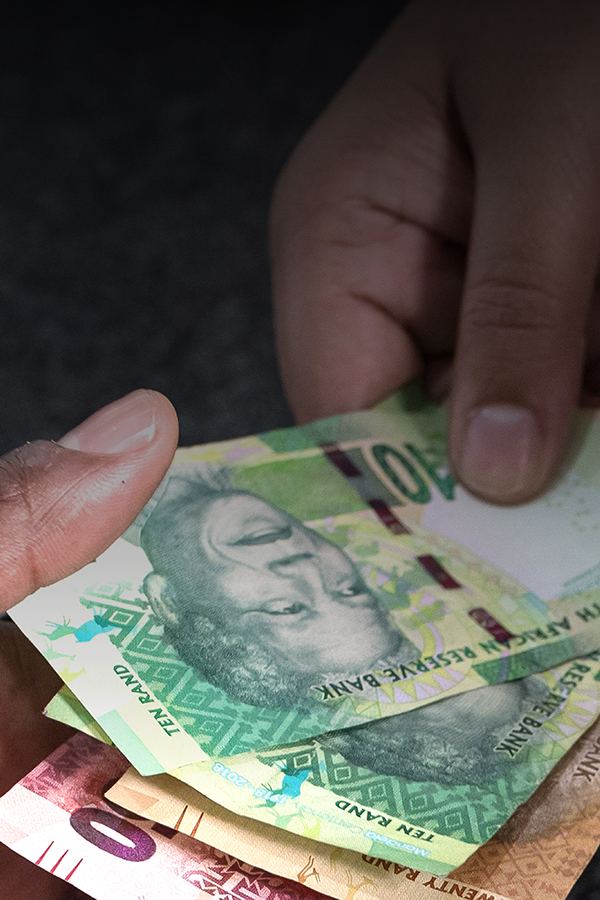9 out of 10 transactions in SA are still made in cash and a third of consumers use cash to avoid hidden costs
South African retailers that go completely cashless potentially risk excluding large portions of their customer base. With nine out of ten transactions in South Africa still made in cash, removing this option limits customer choice in payment methods.
That’s according to Mark Templemore-Walters, Operations Director at Cash Connect, part of the Connect Group. He says that cash still has a vital role to play in the retail ecosystem, especially for unbanked and underbanked consumers who still form around 15% of the population.
Templemore-Walters offers 10 reasons that leading retailers in South Africa should continue to offer customers the choice to pay in cash, along with other instruments like cards and digital wallets.
1. Supporting customer preferences
A significant portion of South African consumers still prefer to pay using cash. Retailers that don’t offer the option to pay with notes and coins risk losing their business. A Mastercard survey of financially excluded consumers found that 100% said they used cash sometimes or regularly.
2. Cost
In the Mastercard survey, 29% of respondents said they use cash to avoid hidden costs that come with bank cards. Retailers, too, need to pay between R0.70 and R3.50 per R100 in card transaction expenses, including costs such as card terminal rentals, an overnight delay in fund clearance, and processing fees. Cash is as affordable as digital, or card payments and it can be more cost-effective for some transactions. For a retailer, in an automated environment, costs of handling and securing cash compare favourably with accepting card payments.
3. Power outages and load shedding
Cash allows businesses to keep running smoothly throughout load shedding, offering on-the-spot settlement of transactions. Digital and card options may need to delay settlement when power and connectivity are down.
4. Financial inclusion
The drive towards cashless risks shutting out unbanked or underbanked people who can’t use cards or digital payments because they don’t have a smartphone, or who can’t get a bank account and card as they don’t have an ID or proof of address.
5. Budget control
Many consumers prefer to use cash because it helps them to manage their spending more carefully. Retailers shouldn’t undermine their ability to manage their budgets in the manner that best meets their needs. Some 47% of South Africans rely on grants for their living, and they need to be able to access ATMs.
6. Trust
Cash is a trusted payments instrument that people can use without involving a third party. It is accessible and available to everyone.
7. Consumers’ right to privacy
Cash enables people to pay for goods and services anonymously, knowing that their data isn’t being gathered to be used for purposes such as marketing.
8. It’s not riskier than the alternatives
One argument that payments providers offer for going completely cashless is the claim that it’s safer and more secure. However, digital payments fraud is on the rise, with Sabric reporting a 36% rise in digital banking fraud incidents in 2022. The Ombudsman for Banking Services reports that new scams such as tap-and-go fraud are adding to already high levels of card fraud. This indicates that criminals will follow the money—and they’ll often target the most vulnerable consumers for card and digital payments fraud.
9. It's like having a bank in your store
Retailers can put in-store ATMs in place to drive revenue growth and offer more customer convenience. They can, for example, install an ATM Recycler to deposit their own cash as well as offer customers the ability to withdraw cash and perform other transactions in the same place they shop. Retailers can earn rebates from each successful cash withdrawal to potentially cover the monthly rental of the ATM recycler device.
10. Cash handling can be automated to save time and money
Companies such as Cash Connect, a leading cash management provider in South Africa, offer automated cash handling and payment solutions that enable retailers to vastly increase security and efficiency of cash transactions, while supporting customer choice. These solutions save time and money by eliminating manual reconciliations and banking, counting and double-count supervision.
Smart, robust cash vaults enriched with fintech solutions can demonstrate tangible cost savings to the retailer’s balance sheet. Automated cash handling can deliver a saving of up to 40% in time and money as opposed to manual cash handling. This can enable retailers to turn cash trade into a net benefit to their business.
These solutions form part of a wider portfolio of fintech solutions. Retailers can Click & Borrow to access opportunity capital up to R5 million in just 24 hours, and repay the short-term loan in affordable daily instalments, straight from the cash in their cash vault (or bank account), so that there is minimal impact on the daily cashflow of the retail business.
Support customer choice and freedom
Says Templemore-Walters: “By giving customers a menu of options that meets their individual needs in terms of speed, convenience, accessibility, and security, retailers will ensure that shoppers can transact safely and conveniently in-store, whether they want to use cards, cash, or a digital wallet. But it’s important to manage cash responsibly.
“Automated cash management solutions allow retailers to reduce the costs and risks associated with handling cash, so they can support customer choice and also benefit from transacting in cash. Such solutions address challenges such as back-office costs associated with counting and recounting of cash, managing, and depositing cash; shrinkage and shortages; and high cash deposit or cash in transit fees.”

